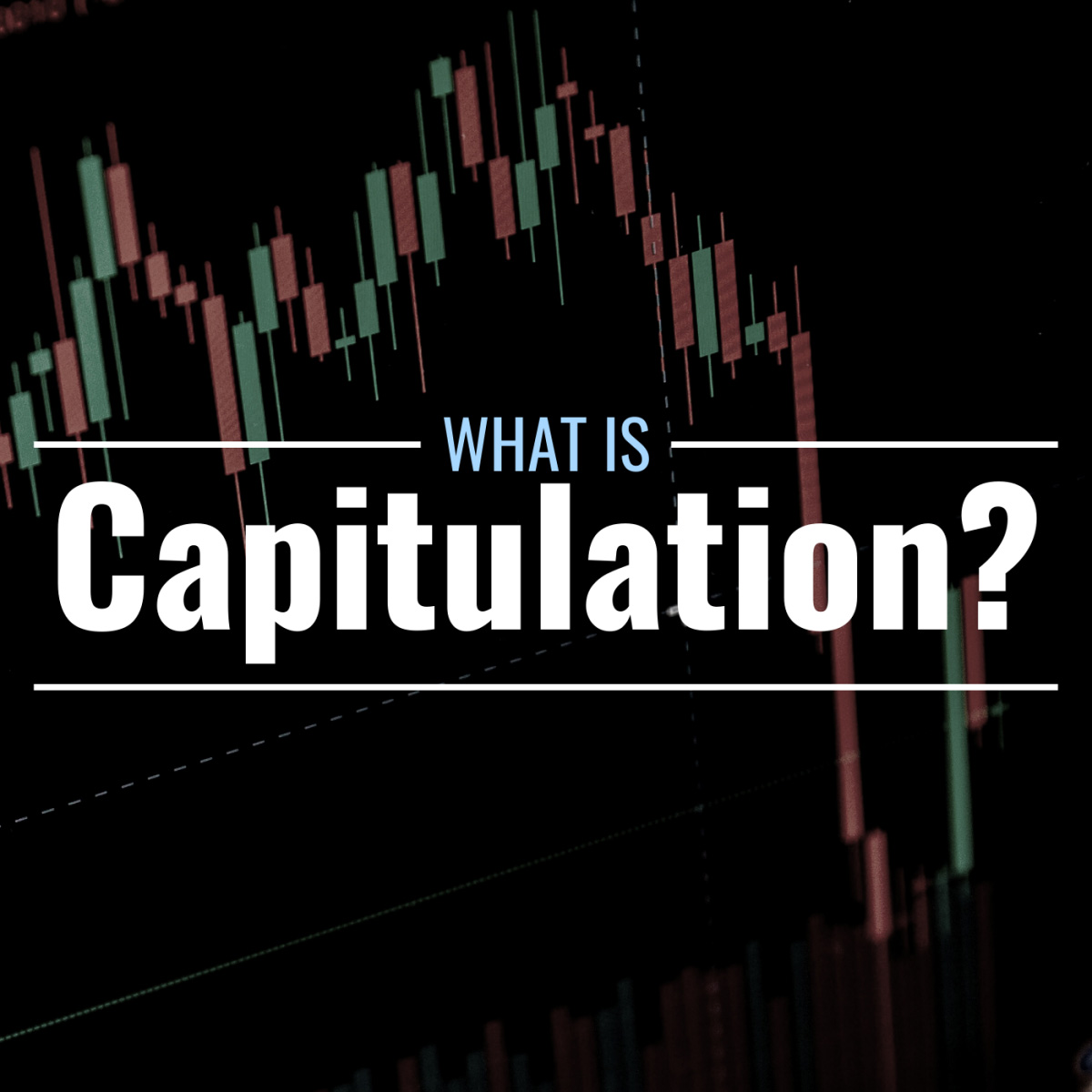

Finance
What Is A Stock Market Influencer
Published: November 24, 2023
Discover the role of finance influencers in the stock market. Learn how they impact investment decisions and influence trends in the world of finance.
(Many of the links in this article redirect to a specific reviewed product. Your purchase of these products through affiliate links helps to generate commission for LiveWell, at no extra cost. Learn more)
Table of Contents
- Introduction
- Definition of a Stock Market Influencer
- Importance of Stock Market Influencers
- Types of Stock Market Influencers
- Characteristics of Successful Stock Market Influencers
- How Stock Market Influencers Influence the Market
- Benefits and Risks of Following Stock Market Influencers
- How to Identify Reliable Stock Market Influencers
- Conclusion
Introduction
Welcome to the world of stock market influencers! In today’s digital age, where information is readily available at our fingertips, it’s no surprise that the influence of individuals on the stock market has gained significant traction. Stock market influencers play a crucial role in shaping market trends, investor behavior, and the overall sentiment surrounding investments.
But what exactly is a stock market influencer? Simply put, a stock market influencer is an individual who possesses extensive knowledge, experience, and credibility in the financial industry. These influencers have the power to shape investment decisions, guide market sentiment, and even impact the movement of stock prices.
Stock market influencers are not just regular investors or analysts; they are individuals who have built a reputation and a following through their insightful analysis, market predictions, and unique perspectives. They have the ability to sway the opinions of their followers and generate interest in specific stocks or sectors.
The rise of social media platforms and online communities has provided a fertile ground for stock market influencers to connect with a vast audience. These influencers leverage platforms such as Twitter, YouTube, and investment forums to disseminate their insights, share stock picks, and engage with their followers.
As more and more people seek guidance and information about investing, the role of stock market influencers becomes increasingly important. Investors are eager to learn from those who have a proven track record of success and want to benefit from their expert knowledge.
In the following sections, we will delve deeper into the definition of a stock market influencer, the types of stock market influencers, and why they are important. We will also explore the characteristics that make a successful stock market influencer and explain how they influence the market. Additionally, we will discuss the benefits and risks of following stock market influencers and provide tips on how to identify reliable influencers.
So, hold on tight as we journey into the fascinating world of stock market influencers and discover how their insights and recommendations can shape your investment journey.
Definition of a Stock Market Influencer
A stock market influencer is an individual who wields a considerable amount of influence and authority in the financial industry. These influencers have gained recognition and credibility through their in-depth knowledge of the stock market, their ability to analyze market trends, and their track record of successful investment decisions.
Stock market influencers are not limited to professional investors or analysts. They can come from various backgrounds, including finance, business, economics, or even self-taught enthusiasts who have honed their skills through years of experience and learning.
What sets a stock market influencer apart from others is their ability to effectively communicate complex financial concepts and investment strategies to a wide audience. They have a knack for breaking down complicated information into digestible pieces, making it more accessible to beginners and seasoned investors alike.
Stock market influencers often have a significant following on social media platforms, investment forums, or their own websites or blogs. Their expertise and reputation attract followers who seek guidance and insights into the stock market.
These influencers provide their audience with valuable information, such as market analysis, stock recommendations, and investment strategies. Their content may include in-depth research articles, video tutorials, podcasts, or live streams where they discuss market trends and answer questions from their followers.
While stock market influencers may not have direct control over the market, their influence lies in their ability to shape investor behavior and market sentiment. Their opinions and recommendations can sway the decisions of their followers, leading to increased buying or selling activity in specific stocks or sectors.
It’s important to note that not all stock market influencers have the same level of expertise or credibility. While some influencers have a solid track record of accurate predictions and successful investments, others may rely more on their unique perspectives and analysis.
Next, let’s explore the importance of stock market influencers and how they can impact the investment landscape.
Importance of Stock Market Influencers
Stock market influencers play a crucial role in the investment world, and their importance cannot be overstated. Here are some key reasons why stock market influencers are important:
- Expert Insights and Analysis: Stock market influencers possess a deep understanding of market dynamics and trends. They provide valuable insights, analysis, and commentary on various stocks, sectors, and investment strategies. These insights can help investors make more informed decisions and navigate the complexities of the market.
- Educational Resource: Stock market influencers are a valuable educational resource for both novice and experienced investors. They break down complex financial concepts, explain investment strategies, and share their experiences. By doing so, they empower individuals to become more knowledgeable and confident in their own investment decisions.
- Market Sentiment and Influence: Stock market influencers have the power to influence market sentiment. When a reputable influencer expresses a positive or negative opinion about a particular stock or sector, it can significantly impact investor sentiment and subsequently affect stock prices. Their insights can create waves of buying or selling activity, potentially leading to both opportunities and risks for investors.
- Access to Unique Investment Opportunities: Stock market influencers often have access to exclusive information and investment opportunities. Through their network and expertise, they may uncover undervalued stocks, emerging trends, or promising sectors that others are unaware of. By following influencers, investors can gain exposure to these unique investment opportunities.
- Community and Networking: Stock market influencers create a community of like-minded individuals who share a passion for investing. Their platforms serve as a space for investors to connect, exchange ideas, and learn from one another. The community aspect fosters collaboration, support, and the opportunity to network with fellow investors.
However, it’s important to remember that while stock market influencers provide valuable insights, they are not infallible. Investing in the stock market always carries risks, and it’s essential for individuals to conduct their own research, diversify their portfolios, and consult with financial advisors when making investment decisions.
Now that we understand the importance of stock market influencers, let’s explore the different types of influencers you may come across in the investment world.
Types of Stock Market Influencers
The stock market influencer landscape is diverse, with various types of influencers catering to different aspects of the market. Here are some common types of stock market influencers:
- Financial Analysts: Financial analysts are individuals who have expertise in analyzing financial statements, economic data, and market trends. They provide insights into company fundamentals, valuations, and investment opportunities. Financial analysts often work for brokerage firms, investment banks, or research organizations and produce reports and recommendations for investors.
- Investment Gurus: Investment gurus are individuals who have amassed significant wealth through successful investments and have a proven track record of success. They are often regarded as trusted sources of investment advice and share their strategies and insights with their followers. Investment gurus may have a long history of successful stock picks or have gained fame through their unique investment approaches.
- Industry Experts: Industry experts are influencers who specialize in specific sectors or industries. They have in-depth knowledge of the companies, trends, and market dynamics within their chosen industry. These influencers offer valuable insights into the performance and potential of specific sectors, such as technology, healthcare, or renewable energy.
- Financial Educators: Financial educators focus on providing educational content and resources to help individuals become more informed investors. They may offer courses, webinars, or workshops on various aspects of finance, investing, and personal finance management. Financial educators aim to empower individuals by equipping them with the knowledge and skills necessary to make sound financial decisions.
- Stock Market Commentators: Stock market commentators are individuals who provide real-time analysis and commentary on market events, news, and trends. They often have a strong presence on social media platforms or financial news networks, where they share their insights, opinions, and predictions. Commentators play an important role in shaping market sentiment and providing timely information to investors.
It’s worth noting that these categories are not mutually exclusive, and many influencers may fall into multiple categories. The key is to find influencers who align with your investment goals, preferences, and risk tolerance.
As the stock market influencer landscape continues to evolve, new types of influencers may emerge. Some influencers may focus on specific investment strategies, such as value investing or growth investing, while others may provide insights into alternative investment options, such as cryptocurrencies or exchange-traded funds (ETFs).
Now that we have explored the different types of stock market influencers, let’s delve into the characteristics that make a successful influencer in the financial industry.
Characteristics of Successful Stock Market Influencers
Successful stock market influencers possess certain key characteristics that set them apart from others in the industry. These traits contribute to their credibility, following, and impact on the investment community. Here are some common characteristics of successful stock market influencers:
- Expertise and Knowledge: Successful influencers have a deep understanding of the stock market and the factors that drive its performance. They continuously educate themselves, stay updated on market trends, and possess a comprehensive knowledge of financial principles, investment strategies, and industry dynamics.
- Track Record of Success: Successful influencers often have a proven track record of making accurate investment decisions or providing insightful market predictions. Their past successes lend credibility to their recommendations and attract a following that values their expertise.
- Transparency and Authenticity: Successful influencers prioritize transparency and authenticity in their interactions with their followers. They openly share their investment strategies, explain their thought processes behind their decisions, and disclose any potential conflicts of interest. This transparency helps build trust with their audience.
- Effective Communication Skills: Successful influencers have the ability to convey complex financial information in a clear and understandable manner. They communicate their insights, analysis, and recommendations effectively through various mediums, such as articles, videos, or podcasts. Their communication style resonates with their audience and makes the content more accessible and engaging.
- Adaptability and Flexibility: Successful influencers understand the ever-changing nature of the stock market. They adapt to new trends, technologies, and market conditions. They are not afraid to change their investment strategies or update their opinions based on emerging information or shifts in market dynamics.
- Integrity and Ethical Standards: Successful influencers operate with a strong sense of integrity and ethical standards. They prioritize the best interests of their followers and avoid providing misleading or false information. They maintain a high level of professionalism and ensure that their recommendations are based on thorough analysis and research.
- Engagement and Interaction: Successful influencers actively engage with their audience, demonstrating a genuine interest in their followers’ questions, concerns, and feedback. They foster a sense of community, respond to queries promptly, and provide valuable insights and guidance. This engagement helps build a loyal and dedicated following.
It’s important to note that while these characteristics contribute to the success of an influencer, no individual is infallible in the stock market. Investors should always conduct their own research, diversify their portfolios, and consider multiple sources of information before making investment decisions.
Now that we understand the characteristics of successful stock market influencers, let’s explore how these influencers can influence the stock market and impact investor behavior.
How Stock Market Influencers Influence the Market
Stock market influencers have the power to shape investor behavior and influence the overall market sentiment through their insights, recommendations, and analysis. Here are some ways in which stock market influencers impact the market:
- Market Sentiment: Stock market influencers can influence the sentiment surrounding specific stocks, sectors, or the market as a whole. When a reputable influencer expresses a positive opinion about a particular stock, it can create optimism and lead to increased buying activity. Conversely, a negative opinion can create fear or skepticism, resulting in selling pressure.
- Stock Price Volatility: Influencers can contribute to increased volatility in stock prices. When an influencer shares their recommendations or insights, it can generate significant trading activity and lead to price fluctuations. This volatility can present both opportunities and risks for investors seeking to take advantage of short-term price movements.
- Short-Term Momentum: Stock market influencers have the potential to create short-term momentum in certain stocks. Their recommendations and endorsements can attract attention and prompt investors to buy or sell, resulting in a surge in buying or selling activity. This short-term momentum can cause stock prices to move rapidly in a particular direction.
- Investor Behavior: Stock market influencers influence how investors approach their investment decisions. Their insights and analysis provide guidance to investors, and their recommendations can sway investment choices. For example, if an influencer emphasizes the growth potential of a specific sector, it may lead investors to allocate more of their capital towards that sector, affecting market dynamics.
- Market Awareness: Influencers bring attention to specific stocks, sectors, or investment opportunities that may go unnoticed by the broader market. By highlighting these opportunities, they create awareness and generate interest among investors. This increased attention can lead to higher trading volumes and potentially impact stock prices.
- Education and Empowerment: Stock market influencers educate and empower investors by providing valuable insights, strategies, and educational content. They help individuals develop a better understanding of the stock market and investment principles. This education can lead to more informed investment decisions and contribute to the overall growth of the investor community.
It’s important for investors to be aware of the influence that stock market influencers can have on market dynamics. While following influencers can provide valuable insights, it’s crucial to conduct independent research, diversify one’s portfolio, and carefully evaluate the merits of any investment before making a decision.
Now, let’s explore the benefits and risks of following stock market influencers.
Benefits and Risks of Following Stock Market Influencers
Following stock market influencers can offer both benefits and risks for investors. Understanding these advantages and potential drawbacks is crucial for individuals looking to incorporate influencer insights into their investment decisions. Here are some key benefits and risks of following stock market influencers:
Benefits:
- Insights and Education: Stock market influencers provide valuable insights, analysis, and educational content that can enhance an investor’s understanding of the market. They offer unique perspectives, share their investment strategies, and provide guidance on various stocks and market trends.
- Access to Expertise: Stock market influencers often have extensive experience and expertise in the financial industry. By following influencers, investors gain access to this expertise and can benefit from the influencer’s knowledge and insights, helping them make more informed investment decisions.
- Investment Ideas and Recommendations: Influencers may share investment ideas and recommendations that can help investors identify potential opportunities in the market. They may highlight undervalued stocks, emerging trends, or sectors with growth potential, providing a starting point for further research and analysis.
- Community and Networking: Following stock market influencers allows investors to become part of a community of like-minded individuals. This community provides a platform for networking, collaboration, and the exchange of ideas and experiences with other investors.
- Diversification of Information: Influencers provide a different perspective and additional information that may not be readily available through traditional sources. Following multiple influencers with diverse backgrounds and expertise can help investors gain a well-rounded view of the market, enabling them to make more informed investment decisions.
Risks:
- Biased or Inaccurate Information: Not all stock market influencers have an unbiased view or provide accurate information. Some influencers may have conflicts of interest, promote certain stocks for personal gain, or make predictions that turn out to be incorrect. It’s essential for investors to conduct their own due diligence and not blindly follow influencer recommendations.
- Market Manipulation: There is a risk that some influencers may manipulate the market through their recommendations or actions. They may have undisclosed positions in certain stocks and intentionally create hype or manipulate sentiment to benefit their own positions. Investors need to be cautious and critical when evaluating influencer recommendations.
- Herd Mentality: Following influencers can sometimes lead to a herd mentality, where investors blindly follow the crowd without conducting their own research. This can result in a rush of buying or selling activity based solely on influencer recommendations, potentially leading to inflated stock prices or market volatility.
- Overreliance on Influencer Recommendations: Relying solely on influencer recommendations without conducting independent analysis can be risky. Investors should use influencer insights as one piece of the puzzle and incorporate other sources of information for a well-rounded investment decision-making process.
- Short-Term Focus: Influencers may primarily focus on short-term trading strategies or provide recommendations based on short-term market movements. This can lead to a tendency for investors to prioritize short-term gains over long-term investment goals, potentially sacrificing a more sustainable and balanced investment approach.
While stock market influencers can provide valuable insights and ideas, it’s important for investors to exercise caution, conduct independent research, and make well-informed investment decisions based on their own risk tolerance and investment goals.
Next, let’s discuss how investors can identify reliable stock market influencers.
How to Identify Reliable Stock Market Influencers
Given the influx of individuals claiming to be stock market influencers, it’s crucial for investors to be able to distinguish reliable influencers from those who may not have the necessary expertise or credibility. Here are some key factors to consider when identifying reliable stock market influencers:
- Track Record: Look for influencers who have a proven track record of accurate predictions and successful investment decisions. Do they have a history of providing valuable insights that align with market movements? Scrutinize their past recommendations and evaluate their accuracy to gauge their credibility.
- Education and Background: Consider the educational background and professional experience of the influencer. Do they have a relevant educational degree or certifications in finance, economics, or a related field? Have they worked in the financial industry and gained practical experience? A solid educational foundation and real-world experience can lend credibility to an influencer’s insights.
- Transparency and Disclosure: Reliable influencers prioritize transparency and disclose any potential conflicts of interest. They openly share information about their investment positions, affiliations with financial institutions, and any compensation they receive for promotions or endorsements. Transparency establishes trust and ensures that the influencer’s recommendations are unbiased.
- Consistency of Message: Look for influencers who consistently provide insights and value to their audience over time. They should have a clear investment philosophy or approach that they consistently stick to. Inconsistencies or frequent changes in their views may indicate a lack of reliability or a tendency to chase short-term trends.
- Engagement and Responsiveness: Reliable influencers actively engage with their followers, answering questions and providing clarifications promptly. They foster a sense of community and have a genuine interest in helping their audience make informed investment decisions. Look for influencers who demonstrate a willingness to engage and share their knowledge with their followers.
- Third-Party Endorsements: Pay attention to endorsements or recognition from reputable third parties. Has the influencer been featured or mentioned by established financial publications or media outlets? Third-party validation can provide additional confidence in an influencer’s expertise and credibility.
- Critical Thinking and Objective Analysis: Reliable influencers emphasize critical thinking and objective analysis. They provide a balanced view of the market, highlighting potential risks and drawbacks alongside opportunities. Look for influencers who encourage independent research and empower their followers to think critically about investment decisions.
- Community Feedback: Consider the feedback and testimonials from the influencer’s community. Do their followers express satisfaction and appreciation for the influencer’s insights and recommendations? While this should not be the sole determinant of an influencer’s reliability, positive feedback can lend credibility to their expertise.
Remember that even reliable influencers can make mistakes or have differing perspectives. It’s important for investors to exercise their own judgment, conduct independent research, and evaluate multiple sources of information before making investment decisions.
By considering these factors and conducting due diligence, investors can identify reliable stock market influencers who can provide valuable insights and guidance to enhance their investment journey.
Now, let’s conclude our exploration of stock market influencers.
Conclusion
Stock market influencers have become an integral part of the investment landscape, offering valuable insights, analysis, and recommendations to investors. These influencers possess expertise, knowledge, and credibility that can help individuals make more informed investment decisions. By leveraging their insights, investors can gain a deeper understanding of market trends, discover new investment opportunities, and navigate the complexities of the stock market.
When following stock market influencers, it is important to consider the benefits and risks associated with their recommendations. While reliable influencers can provide valuable insights, investors must exercise caution, conduct independent research, and make well-informed decisions based on their own investment goals and risk appetite.
Identifying reliable influencers involves evaluating their track record, educational background, transparency, and engagement with their community. By considering these factors, investors can select influencers who consistently deliver quality insights and align with their investment philosophy.
Ultimately, following stock market influencers can enhance an investor’s knowledge, provide new perspectives, and foster a sense of community. However, it’s important for individuals to take responsibility for their own investment decisions, conduct their due diligence, and not solely rely on influencer recommendations.
As the stock market evolves, the role of influencers will continue to evolve as well. It is worthwhile for investors to stay informed, adapt to changing market dynamics, and utilize the guidance of trusted influencers to support their investment strategies.
Remember, the stock market is inherently risky, and no influencer or strategy can guarantee success. By combining the insights of reliable influencers with comprehensive research and a diversified portfolio approach, investors can navigate the stock market with greater confidence.
So, embrace the knowledge and perspectives shared by stock market influencers, but always approach your investment decisions with a critical mindset and a long-term view.














